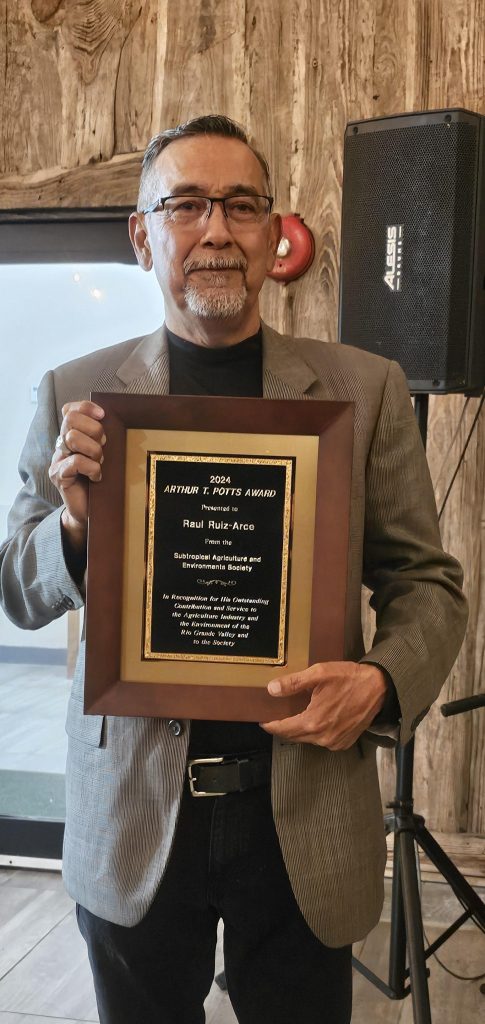
Dr. Raul Ruiz-Arce was born to migrant parents that traveled throughput the US as farm workers. Encouraged of the importance of an education by his family (that included eight siblings), Dr. Ruiz-Arce earned a B.S. degree in Chemistry from the University of Texas-Pan American in 1987. He received an M.S. degree in Biology from the University of Texas-Pan American in December of 1999. In 2010 he completed his Ph.D. in Entomology from The Pennsylvania State University.
Dr. Ruiz-Arce has lived in the Rio Grande Valley, Texas since 1961. He worked at the USDA APHIS PPQ Insect Management and Molecular Diagnostic Laboratory in Edinburg, TX for over 35 years. During his tenure, he led numerous projects that targeted the development and implementation of technologies for the detection, identification, and differentiation of plant pests/pathogens. He conducted research both individually and as a member of teams and provided leadership and technical advice for plant pest/pathogen detection and differentiation using molecular biology. Many of his 70+ internal and journal publications have focused on the molecular identification of economically important pests such as the commercial cotton boll weevil (Anthonomus grandis grandis), the Mexican fruit fly (Anastrepha ludens), the West Indian fruit fly (A. obliqua), and the Mediterranean fruit fly (Ceratitis capitata).
Throughout his career, Dr. Ruiz-Arce has worked to provide scientifically supported conclusions to mission-critical
issues in agriculture. Much of this work is relevant to the agricultural industry worldwide as well as in the Rio Grande
Valley, Texas. His roles included functioning as an administrator. He helped fund numerous research
groups via cooperative agreements, totaling over $5 million dollars. He served as the USDA APHIS PPQ
representative, tasked with developing a $300 million dollar funding opportunity for the surveillance of SARS-CoV-2
in susceptible animals, essential to preventing or limiting the next emerging zoonotic disease outbreak or the next global pandemic. He served as the PPQ Science & Technology representative and core member of the USDA APHIS PPQ Molecular Diagnostic Working Group Initiative and successfully implemented the first molecular diagnostic method at a US port of entry.
He retired from the USDA in December of 2023 and now enjoys ranching in South Texas. His passions include spending time with his wife Oralia and family, and tending to the wildlife on his ranch, beekeeping, and supporting the local community with his background in biology and as a Texas Master Naturalist.
MDWG Initiative
Helicoverpa Cross-Functional
American Rescue Plan Representative for USDA APHIS PPQ $300 millio